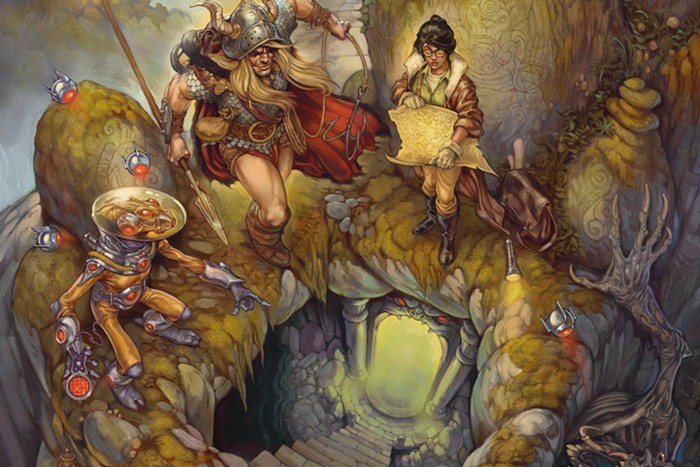I have a difficult relationship with the Best American series of books. If you've spent any amount of time in a bookstore, you know the ones I'm talking about: The annually published collections of short work from a given year: Best American Short Stories, Best American Essays, Best American Science and Nature Writing, that sort of thing. My problem mostly has to do with the same issue I take with awards shows: The concept of a "best" piece of writing published in a single year is weird and self-congratulatory. I agree that some pieces of writing are better than others, but it seems presumptuous to determine the best piece of work produced in a year without the lens of history on your side. I freely admit that this is a quibble, but it's a quibble that colors my appreciation of these books.

So imagine my embarrassment when I find myself declaring to you that The Best American Comics 2014 is the best edition of The Best American Comics to ever be published. The thing is, it doesn't have much by way of competition. Since its very first edition in 2006, I've always felt weirdly ambivalent about these comics collections. It seems as though the editors in charge of selecting the comics tended to try way too hard to reach for intellectual and abstract comics, like they were trying once and for all to prove the worth of comics as a literary and artistic medium in one volume. And again, the problem of "Best" launches forth into the discussion: Some of these books were so willfully obtuse that if they truly represented the best comics to be published in a year, the future of comics as a medium would have to be in doubt.
The Best American Comics 2014 is guest-edited by Scott McCloud, author of Understanding Comics, and McCloud's fingerprints are all over the book, from his emotive introductions to each section of the book to his ambitious demand in the first few pages that readers do not flip through the book:

The following comics selections and text explanations are meant to be read in the same order in which they're presented here. Please consider doing so, and honoring the affection, careful planning, and borderline obsessive-compulsive disorder that went into the creation of the book you hold in your hands.
I followed McCloud's advice, and I'm glad I did. This book is reads like a narrative, which of course it kind of is. It's a journey. McCloud is taking the reader on a survey of the comics scene in 2014. He includes some old literary comics standbys like Jaime Hernandez, Chris Ware, and Adrian Tomine, sure. But he also includes webcomics and mainstream comics like Brian K. Vaughan and Fiona Staples's Saga. He has a whole section extolling the rise of female cartoonists and comics fans. And, yes, he includes those cerebral experimental comics that, in past editions of Best American Comics, have been grossly overrepresented. The end result is a book you can hand anyone as an overview of where comics are as an art form in the year 2014. In fact, I may even take my earlier hypocritical claim one step further and call this the best book I've ever read in the whole Best American series. It's informative, funny, surprising, and a satisfying reading experience on its own. This should be the book that every Best American guest editor aspires to emulate in years to come.


















